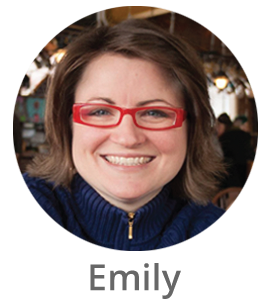FULL LGBTQ+ INCLUSION
What does it mean to be fully LGBTQ+ inclusive?
Our church is LGBTQ+ affirming. LGBTQ+ inclusion means we perform gay weddings and have no glass ceiling on how members of the LGBTQ+ community may serve. In fact, our lead pastor is a married gay woman. Our practice of LGBTQ+ inclusion is inspired by the gospel and informed by a faithful reading of Scripture. We have studied this question from a biblical, theological, and pastoral perspective; as a result, we believe the handful of prohibition texts address something other than loving relationships between same-gender couples. Instead, these texts speak to practices common in the period in which they were written. Examples include temple prostitution, the exploitation and assault of slaves and children, and sexual rituals associated with Roman pagan rites. We recommend Rev. Dr. David Gushee’s book, Changing Our Mind, as an easily-accessible resource on this topic. Or Dr. Sarah Ruden’s book, Paul Among the People.
Our LGBTQ+ Inclusion Story
Our founding pastors, Emily Swan and Ken Wilson, tried to advance full LGBTQ+ inclusion in their previous denomination (Vineyard USA). While they were advocating for inclusion the Vineyard created policies condemning gay weddings and prohibited LGBTQ+ people from serving as pastors. When this happened, Emily and Ken started Blue Ocean Church. At Blue Ocean we practiced full inclusion from the very beginning. Nearly a third of our congregation identify as LGBTQ+.
Many of the straight people who joined Blue Ocean in the beginning did so at a social cost for their support of LGBTQ+ people. Two books on LGBTQ+ inclusion have been written by members of our church. These include A Letter to My Congregation by Ken Wilson, and Unnatural: Spiritual Resiliency in Queer Christian Women, by Rachel Murr. In a book published in 2018, Solus Jesus: A Theology of Resistance, Emily and Ken offer a larger context for LGBTQ+ inclusion.
We Really Mean Gay-Friendly and Welcoming
Many churches use terms like gay-friendly and welcoming (“All are welcome!” they proclaim) while harboring policies of exclusion. We are glad that churches now are somewhat embarrassed by their exclusionary policies, but we feel it is important to be open and honest about such things and not hide anti-LGBTQ+ policies behind friendly-sounding language simply because it’s uncomfortable to admit gay people aren’t actually fully accepted.
Another way to put it is this: there’s a difference between being “friendly” and being true friends. Similarly, there’s a difference between true welcome and polite welcome, between tolerance and acceptance. The fact is, if churches refuse to bless the weddings of LGBTQ+ people, or place limits on how they can serve, they are not truly gay-friendly or welcoming. Those of us who are not LGBTQ+ would not accept the same policies toward us, and we would not call them friendly or welcoming. As Jesus taught us, “Let your ‘yes’ be yes and let your ‘no’ be no.” We’d prefer exclusionary churches say up front what their policies are regarding gay marriage and ordination rather than paper over their exclusionary policies with sweet-sounding language.
Why Full Inclusion Matters to Everyone
Whenever one group is singled out, everyone is worse off for it. Fear and judgement increases. Others wonder, Could this happen to me, if I’m honest about who I am?. If a few texts of Scripture can be misapplied to LGBTQ+ people, what is to prevent the same thing happening to others who are perceived as different? Often the approach to Scripture that supports exclusion also makes life more difficult for women, people of color, and other minorities. If the gospel is not good news for all, how can it be truly good?
That said, our church is not about being gay or straight—we focus on following Jesus. By removing the traditional barriers and tearing down the walls of discrimination, we can get on with the joy of loving God and our neighbors without fear.
We feel honored to be part of a movement to end the harm done to LGBTQ+ people. This is a work of the Spirit in our day, part of a necessary reformation of the church, and a witness to the goodness of the gospel.

